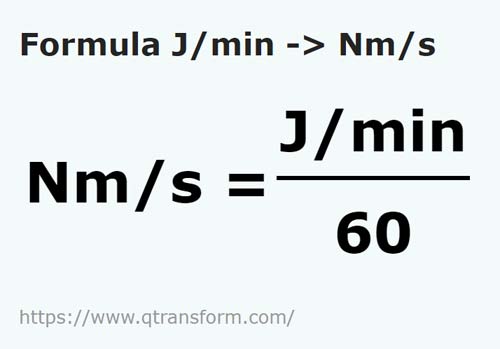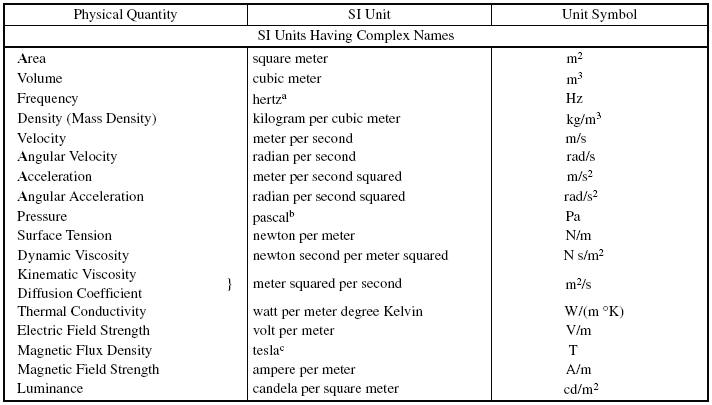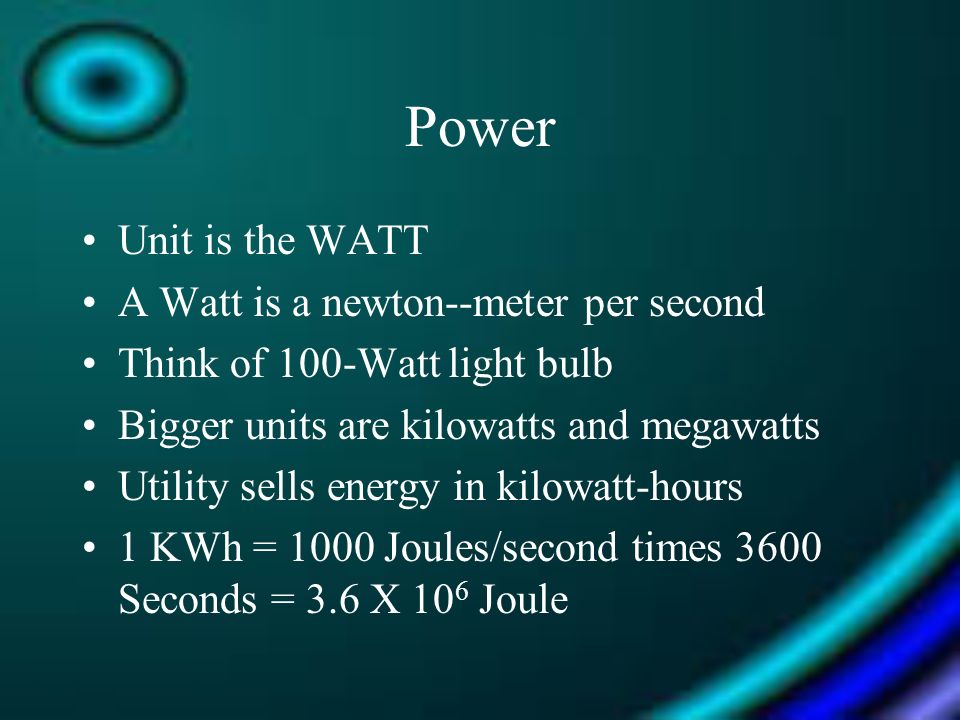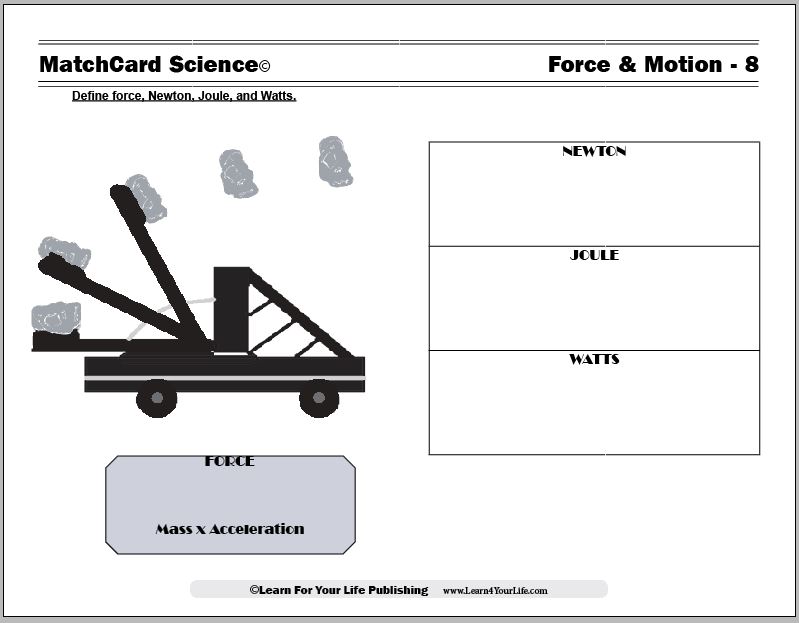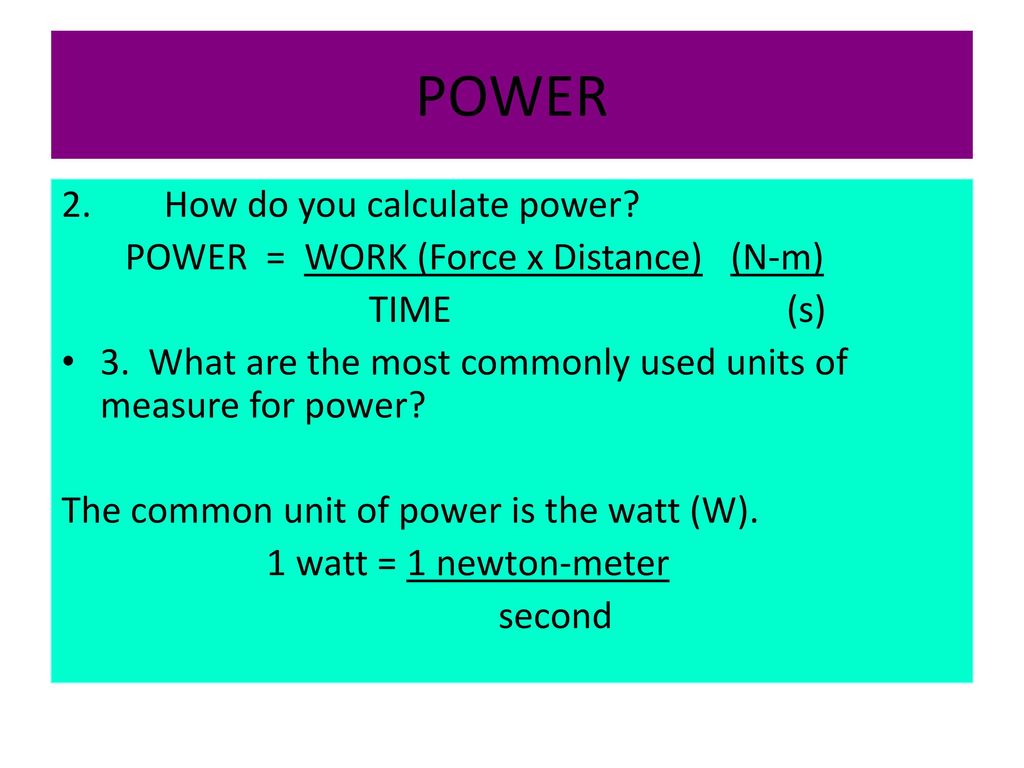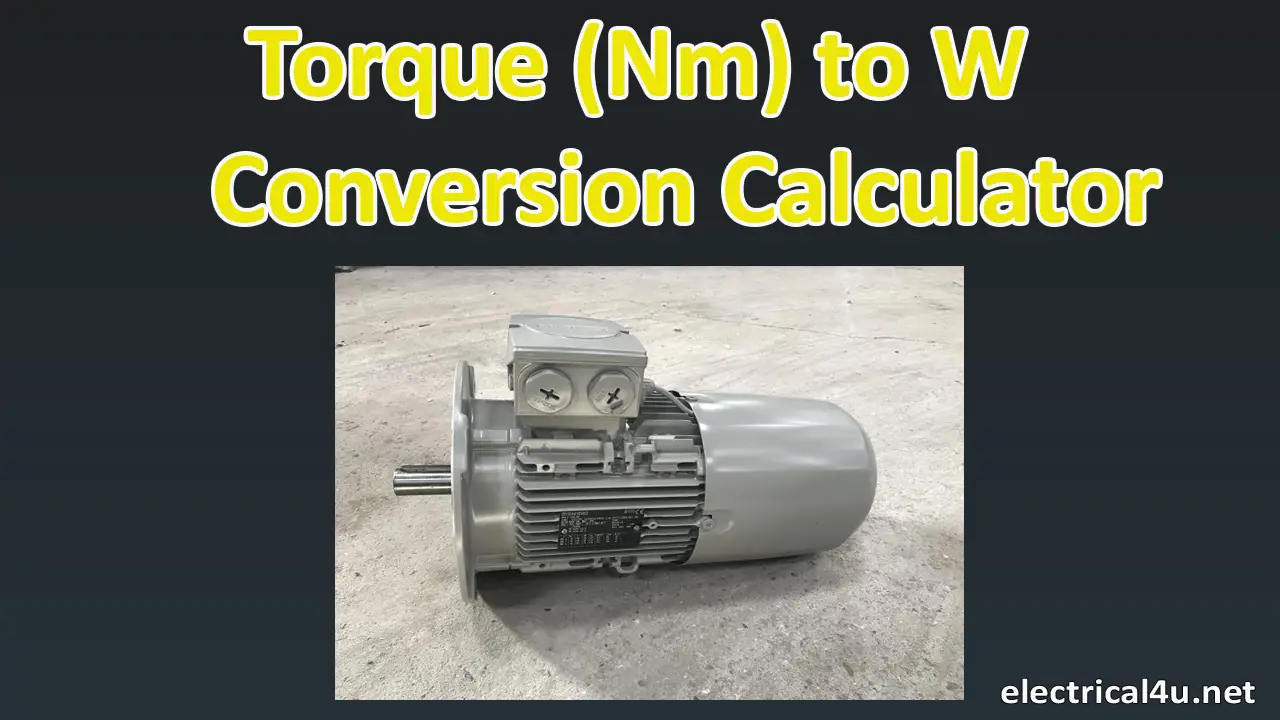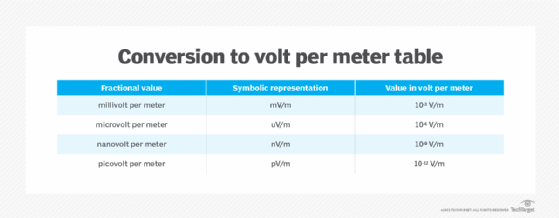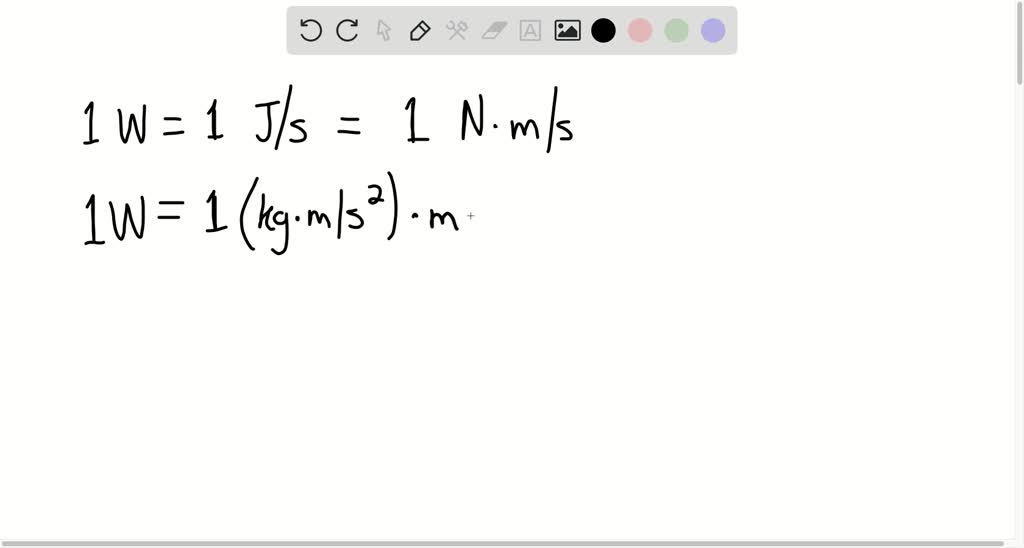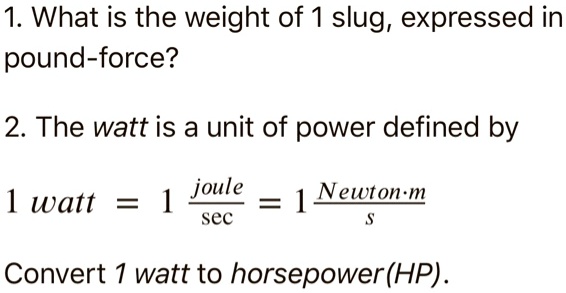
SOLVED: 1. What is the weight of slug, expressed in pound-force? 2 The watt is a unit of power defined by joule 1 watt = 1 = sec Newton m Convert 1 watt to horsepower(HP):

10.1 DEFINATION Power= Torque × Velocity P (Watt)=T (N.m) × ω (rad/sec) ω= rad/sec where N is the revolution per minute (RPM) P= watt. - ppt download


